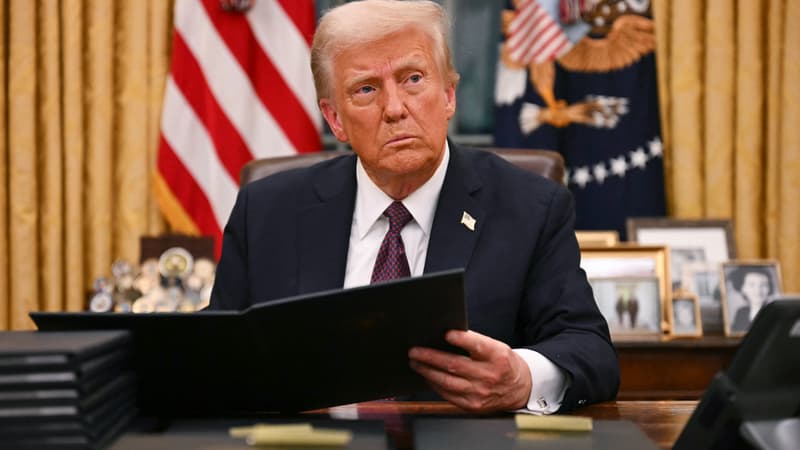New turn in the long and complex soap opera of Donald Trump’s commercial war. This Wednesday, the US president, Donald Trump, underwent a judicial camoufla, while an American court blocked the Customs duties called “reciprocal” Tax since the beginning of April in all products that enter the United States.
The court gave the White House for 10 days to comply. The US government has appealed this decision.
American Justice was pronounced after two complaints presented in recent weeks, one for an alliance of twelve US states, including Arizona, Oregon, New York and Minnesota, the other by a group of US companies.
And it is not the mastodons of the American industry, the commercial giants or the pillars of Silicon Valley who managed to make the government of the main power of the world (at least momentarily) bend (at least momentarily). But a handful of small businesses gathered within an association, the Liberty Justice Center.
The US president had argued with an emergency state to reduce the increase in customs duties in the United States towards the rest of the planet.
Considerable additional costs
It is a group of five small US businesses behind these procedures. First, an import society of New York of wines, spirits and other Sake called their selections. Donald Trump’s threats to alcohols (and innovative French) have caused officials of this small company founded in 1987.
The other plaintiffs are quasi anonymous companies that say they represent “the US worker.” We find in particular Fishusa, a Pennsylvania company that sells fishing equipment, Pipe Genova that manufactures in Utah pipes and plastic accessories for plumbing or microkits, a manufacturer of Virginie musical institutions and finally Terry Cycling that markets vermont clothes.
The last company had just been bought by a local entrepreneur when Donald Trump was chosen. The establishment of customs duties has hit its activity.
These companies depend a lot on import and free trade they expect an increase in customs rates that could be fatal for their economic model.
Terry Cycling expects, for example, having to face in 2026 for the price costs estimated at 1.2 million dollars, an amount that is simply not bearable for a company of its size, according to its owner.
Source: BFM TV


